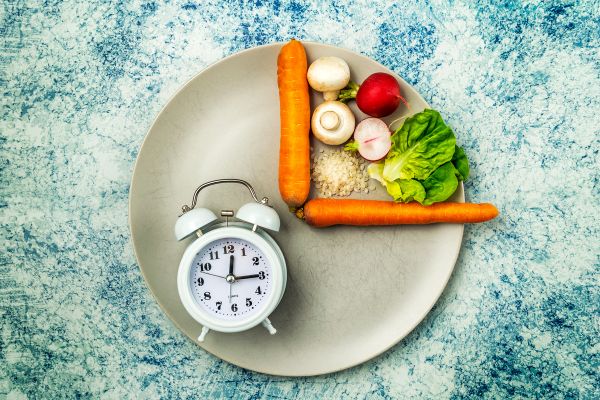Ever stood in your kitchen, staring at that bag of beetroot powder, and wondered, “How does this stack up against fresh beets?” Well, you’re not alone! “Beetroot powder vs. fresh beetroot” is the match-up of the century for health enthusiasts and foodies alike. And today, we’re diving headfirst into the nitty-gritty details of this riveting debate. So, strap in folks, because we’re about to spill the beet… pun totally intended! The health industry is abuzz with the benefits of beetroot. Whether it’s beetroot tablets or the natural powder, including this superfood in your diet can be transformative. Especially when products like NutriGrove’s Organic Beetroot Powder ensure purity and quality.
Unearthing the Roots
Beetroot Powder:
- What is it? Simply put, it’s beets that have had the water sucked out of them and then ground into a fine powder.
- Where would you use it? Smoothies, soups, cakes – you name it! Its versatility shines through in a pinch.
Fresh Beetroot:
- What is it? The ruby-red, earthy vegetable we all know and, well, have mixed feelings about!
- Where would you use it? Salads, juices, roasted dishes, and hey, even some desserts!
The Ring: Benefits Face-Off
Beetroot Powder: Pros
- Shelf Life: It lasts way longer than its fresh counterpart. No more throwing out rotten beets!
- Convenience: A spoonful of powder is way easier to manage than peeling, chopping, and juicing.
- Nutrient Dense: Since it’s concentrated, you’re packing in more benefits in a smaller serving.
Fresh Beetroot: Pros
- Taste: Nothing beats (or should I say beets?) the flavor of fresh produce. It’s nature’s candy after all!
- Texture: That crunchy bite is something the powder just can’t replicate.
- Whole Food Benefits: Consuming foods in their natural state often offers a broader spectrum of nutrients.
But What About the Cons?
Oh, they’ve got those too. Let’s break it down.
Beetroot Powder:
- Can sometimes be processed, leading to a loss of certain nutrients.
- Overconsumption can give you too much of certain minerals.
Fresh Beetroot:
- They’re perishable. They don’t last long, especially if not stored correctly.
- Requires more preparation time.
History of Beetroot Powder vs. Fresh Beetroot
The beetroot, belonging to the same family as chard and spinach, boasts a rich history. Originally, in ancient times, only its leaves were consumed. The sweet, red bulb we know today wasn’t popular until the age of the Romans. As with many foods, the quest for convenience, longevity, and portability led to the innovation of beetroot powder.
Real-world example: Ancient texts and paintings show beet leaves being used as a medicinal plant. In medieval Europe, the root gained popularity and was used to treat a range of ailments, from digestive issues to blood-related conditions.
Step-by-step Process
Transforming Fresh Beetroot to Beetroot Powder
- Harvesting: Select fresh, mature beetroots free from blemishes and rot.
- Washing and Peeling: Thoroughly wash the beets to remove dirt. Peel off the outer skin.
- Slicing: Cut the beets into thin slices to ensure even drying.
- Drying: Use a dehydrator or an oven at its lowest setting. The goal is to remove all moisture without cooking the beets.
- Grinding: Once completely dried, grind the beet slices into a fine powder using a grinder.
- Storage: Store in an airtight container, away from direct sunlight.
Case Studies
- The Athlete’s Choice: A recent study found that athletes who consumed beetroot powder had enhanced performance due to the nitrates converting into nitric oxide, improving blood flow.
- Rural Communities: In certain African communities where fresh produce is hard to store, beetroot powder offers a viable alternative. This has improved nutrient intake in regions with limited fresh produce availability.
- Gourmet Cooking: Renowned chefs have been using beetroot powder to enhance the color and flavor of dishes, from pastas to desserts, showcasing its culinary versatility.
Benefits of Beetroot Powder vs. Fresh Beetroot
Socio-Economic Benefits
- Job Creation: The beetroot powder industry has opened up employment opportunities in the agricultural and manufacturing sectors.
- Export Potential: Countries producing beetroot powder can tap into the global health foods market.
Hypothetical Scenario: Consider a country like Ukraine, where beetroot is a staple. Transitioning to beetroot powder production on a larger scale could elevate its position in global markets, leading to economic growth.
Psychological Benefits
- Ease and Convenience: The convenience of beetroot powder reduces the mental load for those seeking nutritional benefits without the hassle of fresh produce storage.
Community-Based Benefits
- Education: Communities can be educated on the benefits of beetroot, leading to better health outcomes.
Challenges Faced
- Nutrient Loss: The processing of beetroot into powder can sometimes result in a slight nutrient loss.
- Cultural Resistance: In regions where fresh beetroot consumption is a cultural norm, there might be resistance to the powdered form.
Future Outlook
Given the rising global trend towards health and wellness, we can anticipate a growth in the beetroot powder industry. However, the charm and nutritional benefits of fresh beetroot will never fade. We might see innovations in the way beetroot powder is produced to retain maximum nutrients. Furthermore, with the advancement in agri-tech, fresh beetroot might be genetically modified to have a longer shelf life, bridging the gap between fresh and powdered forms.
FAQs
- Which one’s better for smoothies?
Beetroot powder takes the cake here. It blends seamlessly, and you won’t end up with chunks. - Is the nutritional value the same?
Not quite. While both have fantastic benefits, the concentration and variety might differ. - Can I substitute one for the other in recipes?
You sure can, but you’ll need to tweak the quantity and expect a slight change in texture.
Transitional Verdict
You see, when you’re juggling “beetroot powder vs. fresh beetroot”, it’s not about crowning a winner. It’s about understanding their strengths and weaknesses. Both have their moments to shine!
Wrapping it Up: So, Which Should You Beet… Err… Beat Towards?
Whether you’re team powder or team fresh, one thing’s for sure: beetroots are nature’s gems. They’re packed with nutrients and offer a multitude of health benefits. If you’re someone always on-the-go, beetroot powder might just be your best buddy. But if you’re a purist, seeking that genuine beet experience, fresh is where your heart lies.
So next time you’re scratching your head in the kitchen, wondering which one to opt for, just remember – no matter which you choose, your body will thank you for the beet-iful nutrients you’re feeding it!


